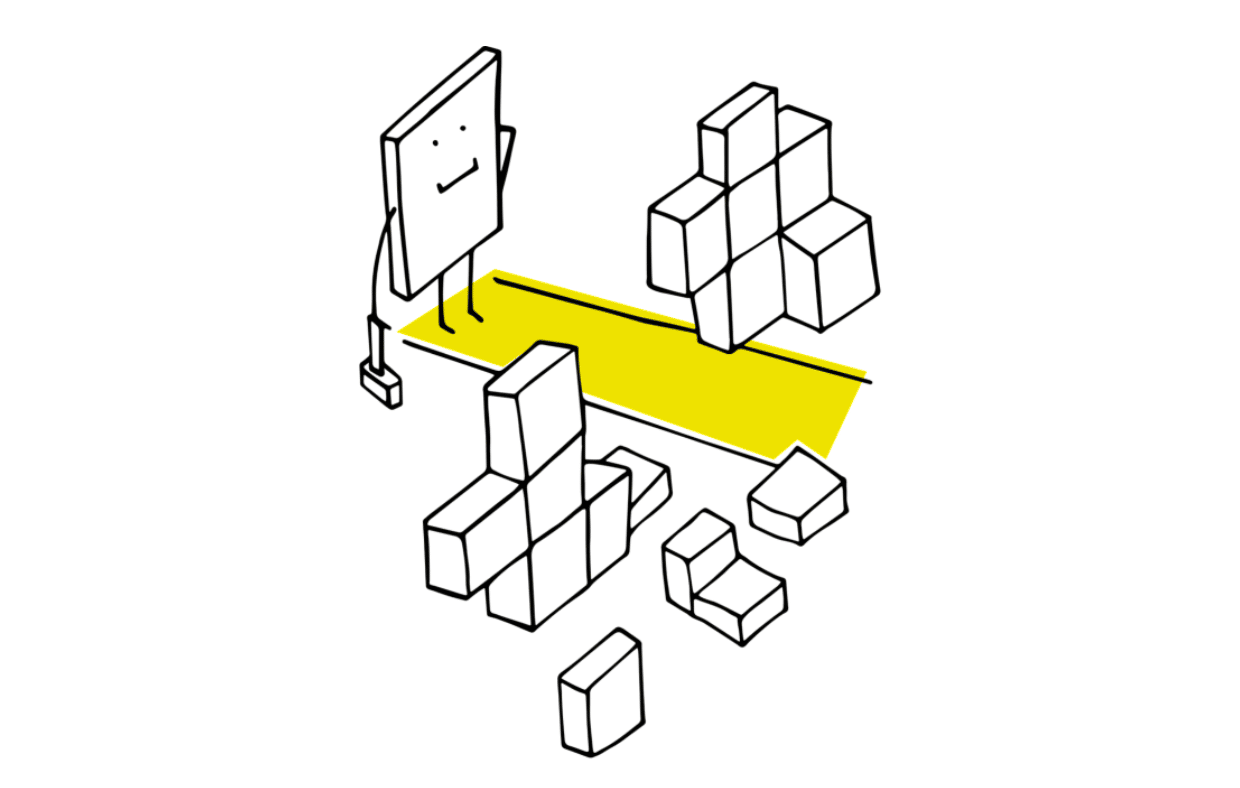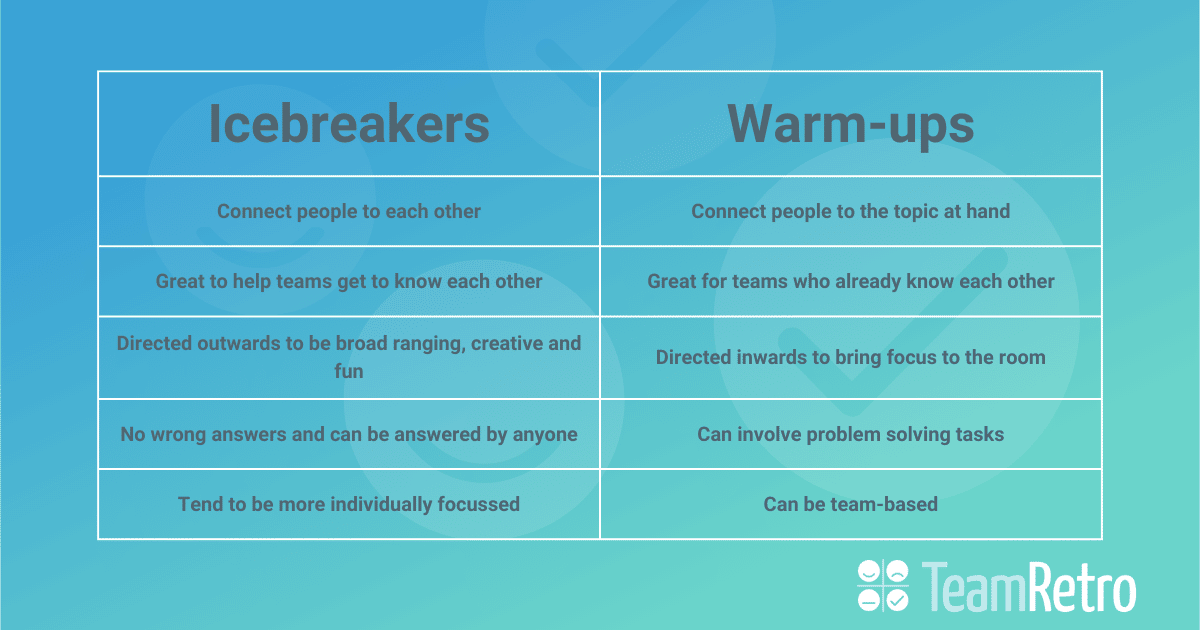If you’re working with a new team, or you have a new team member, use an icebreaker. If you’re working with an established team, it’s likely a warm-up will be more effective.
When it comes to kicking off a meeting, icebreakers help connect people to each other, while warm-ups help connect people to the topic at hand. When deciding which one you should use, it all boils down to one simple question: how well do you know each other?
So if it’s so simple, why are the two so often confused with each other? Well, this is because they have a number of things in common –
- They are both great activities to kick off meetings.
- They both help set the stage for productive, focussed sessions.
- They both can help build a group’s energy.
- They are both an opportunity to model supportive behavior.
Importantly, both icebreakers and warm-ups can help build psychologically safe spaces. It’s no wonder they are often used by Scrum Masters to help kick off retrospectives.
Now, having things in common doesn’t mean they are the same. In fact, understanding the differences between the two will help you deliver more effective meetings for your team.
What is an icebreaker question and what makes it good?
An icebreaker is a simple activity that helps connect people. They foster tiny, but important interactions that build rapport.
Research has confirmed that the connections icebreakers help build are valuable. They help lay the foundation for more effective meetings. They remove barriers that come from a lack of familiarity. They nurture psychological safety. The fewer such barriers, the greater the level of trust, safety and, therefore, productivity.
Good icebreakers follow the 3E Rule, they are Easy, Enjoyable and Explainable. They give everyone in the room a chance to say something without the pressure of having to be right.
Icebreakers are a chance to have fun. They do not have to be connected with the meeting at all. They can be creative, clever, silly or any combination of the three. The main thing is, they are inclusive so everyone in the group is invited to contribute and could easily respond.
Icebreakers are the perfect activity to help people get to know each other. They are really valuable for people who’ve not worked together before. They are a great way to start retrospectives for new teams, or teams with new members.
Icebreakers can be the difference between a good meeting and a great one. That’s why we’ve shared all sorts of examples of Quick But Effective Icebreakers to Launch Your Next Retrospective.
What is a warm-up and what makes it good?
A warm-up is an activity that helps people focus on the task at hand. They help people direct their full attention to the topic of the meeting. They also help them to switch off from other thoughts and tasks.
A warm up can be a co-operative task, a challenge or even a game. They can help build teamwork and camaraderie while focussing the group. They help people limber up before the meeting which leads to the session being faster, more focussed and efficient.
Generally speaking, a warm-up is used for a team that already knows each other, and where good relationships exist between participants.
Warm-ups tend to connect people to the meeting rather than with each other. Instead of finding common ground between participants by encouraging personal reflections, they aim to connect people to their common purpose at a shared moment in time. People could, for example, be asked what people think of the task. They could be asked what they need to stop thinking about in order to actively engage. Participants could simply be asked how they feel at that moment in time.
A more creative example of a warm-up is Countdown. The aim of the activity is to count down from 20 with each person taking a turn to say one number out loud. No one is nominated to coordinate the order in which people speak. No one can speak at the same time (or the group starts again). This exercise requires everyone to pay attention to what’s happening in the room. They need to listen and carefully observe in order to deliver success.
Run your own Icebreaker now!
Need help choosing the right ice-breaker?
We’ve got you covered! Find the best ice breaker questions for your next team meeting.

